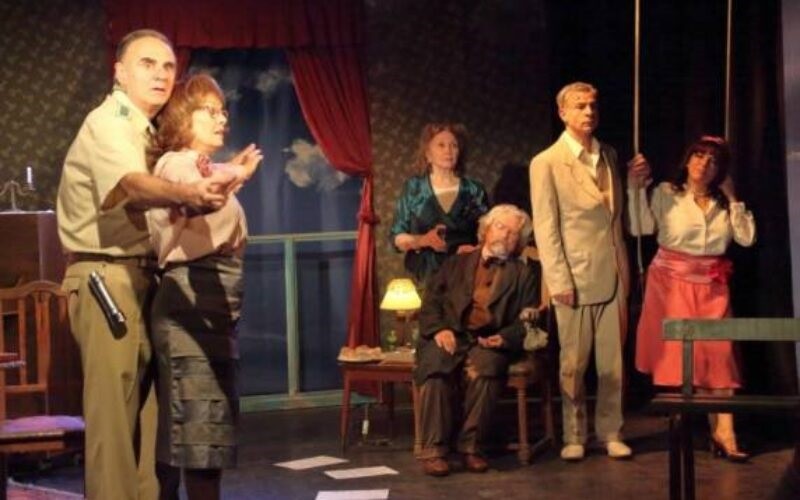
Frédéric Chopin died on October 17, 1849, an emblematic date for Argentines, given that on the same day, but in 1945, thousands of marginalized people finally put their “legs in the fountain.” Tito Cossa plays with the ambiguity of the two dates: on the one hand, the idea of installing a bust of Chopin in a square in Villa del Parque; on the other, the intimacy of a time in which socialist, anarchist and communist ideas circulated fluidly. In the center, a family in which the mother dreams of her daughters marrying a socialist, while the father remembers the times of the civil war in Spain and the boyfriend of one of the daughters goes to fight in Europe to fight for a better world. In “Nobody Remembers Frédéric Chopin Anymore” the dead live like ghosts that always return. They are there with their strengths and weaknesses. And they propose to the living a discussion about their lives.
The deep loneliness of Susy, perhaps destined to be the spinster in Roberto Arlt’s stories; Zule’s illusion of sustaining love at any cost, as did the protagonist of “Doña Rosita the Bachelorette”, in the work of García Lorca, or Frank, the idealist who grows old with his convictions, but without the love that knew how to conquer when he was young, are some of the characters who go from the past to the present through the transformation of their bodies on stage. Also the father, who believes that poetry is going to change the world, and the mother, who usually confronts him when she disagrees with him, weave that universe of desires and fantasies in which there is even room for a warm and unforgettable guardian of square.
Norberto Gonzalo, in his admirable staging, did not need large and cumbersome technical resources. It was based on the talent of its actresses and actors. Stella Matute goes from excitement to despair; Brenda Fabregat walks the path of eroticism and deception; Claudio Pazos transforms his body in moments and from a young man he becomes a sick and lonely old man; Amancay Espíndola plays her role as the woman of the time and that of the incipient feminist, Daniel Toppino builds an uncompromising idealist, while Daniel Dibiase makes his way in a world that he did not imagine: that of a humble and schematic man who can reach the heart of the girl of his youthful dreams.
In memory everything is mixed. But in poetic memory those diffuse limits, between dreams and longing, become artistic form. Time, precisely, combines the past with the present and the future. The magic of theater, or rather the power of theater, means that images allow us to think about that fascinating wheel that life proposes. Hence, lighting, music, scenery or costumes seem, although they are not, the same thing when it comes to engaging in an imaginary dialogue with the actors’ bodies.
(“Nobody remembers Frédéric Chopin anymore”, by Roberto Cossa. Direction and staging: Norberto Gonzalo. Performers: Stella Matute, Leonardo Odierna, Brenda Fabregat, Claudio Pazos, Amancay Spíndola and Daniel Dibiase. Music: Gerardo Amarante. Scenography and costumes: Alejandro Mateo. Lighting Leandra Rodríguez Adea. Choreography: Mecha Fernández. At Teatro La Máscara, Piedras 736. Performances on Saturdays, at 5 p.m.
Source: www.laizquierdadiario.com

